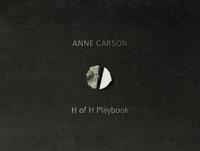Publisher's Synopsis
Excerpt from The Odyssey of Homer, Vol. 2 of 1: Translated Into English Blank Verse
HE kind reception which my translation of the' Iliad has met with from my countrymen has encouraged rne to attempt a translation of the Odyssey in the same form of verse. I have found this a not unpleasing employment for a period of life which admonishes me that I cannot many times more appear before the public in this or any other' manner. The task of translating verse is not, it IS true, merely mechanical, since it requires that the translator should catch from his author somewhat of the glow with which he wrote, just as a good reader is himself moved by the words which he delivers, and communicates the emotion to his hearers yet is the translator spared the labor of invention, - the task of producing the ideas which it is his business to express, as well as that of bringing them into their proper relations with each other. A great part of the fatigue which attends origi nal composition, long pursued, is therefore avoided, and this gentler exercise of the intellectual faculties agrees better with that stage of life when the brain begins to be haunted by a presentiment that the time of its final repose is not far off.
Some of the observations which I have made, in my Preface to the Iliad, on that work and the translation which I have made of it, apply also to the Odyssey and to the version which I now lay before the reader.
About the Publisher
Forgotten Books publishes hundreds of thousands of rare and classic books. Find more at www.forgottenbooks.com
This book is a reproduction of an important historical work. Forgotten Books uses state-of-the-art technology to digitally reconstruct the work, preserving the original format whilst repairing imperfections present in the aged copy. In rare cases, an imperfection in the original, such as a blemish or missing page, may be replicated in our edition. We do, however, repair the vast majority of imperfections successfully; any imperfections that remain are intentionally left to preserve the state of such historical works.










